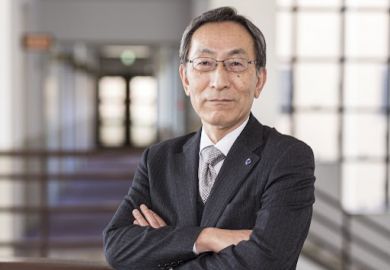The future of the governing body at the University of Hong Kong (HKU) remained unclear despite government intervention aimed at resolving longstanding tensions at the top of the institution.
An investigative group appointed by Hong Kong’s chief executive has presented findings and recommendations on the appointment of senior management positions at HKU, after an ongoing row between the vice-chancellor and council chair came to a head earlier this year.
Vice-chancellor Xiang Zhang had claimed the council had reshuffled the university's leadership team, including effectively demoting some members, without his knowledge. In response, the council accused Professor Zhang of “frequent management issues”, including failing to fill key positions.
Richard Wong, seen as a key ally of Professor Zhang, was one of those demoted in the reshuffle. Now, according to the university’s website, he has resumed his original position as provost and deputy vice-chancellor, albeit for an undefined interim period.
While the findings and recommendations regarding the appointment of senior team members were “fully accepted” by the council, insiders suggested these moves showed the investigative group had sided with Professor Zhang over the council chair, Priscilla Wong.
Ms Wong’s own future remained uncertain: her three-year term will end in January 2025, and there are questions over whether it will be renewed, as is common in Hong Kong.
Meanwhile, the findings only address a small part of the larger scandal that has plagued the university over the past year, including a controversial investigation that cleared the vice-chancellor of misconduct. It was unclear how, if at all, the resulting issues have been resolved.
“The council was right to implement the short-term proposal to restore the university back to normal operation, but more transparency is needed,” said Casey Chik, a student representative on the council.
“Ultimately, it remains for the university to address its internal problems, including those identified in previous whistleblower investigations.”
“To me, it’s more like the Hong Kong government’s attempt to simply try its best to shut everybody up,” said Patrick Poon, a visiting researcher at the University of Tokyo and an HKU alumnus.
“There’s still not enough transparency about what happened in relation to the appointment of senior management and what would be the guidelines on upholding the accountability of the vice-chancellor and other senior management.
“We have yet to see the recommendations of the study group, but we can hardly say that it’s a result of an independent investigation, given the Education Bureau and the University Grants Committee were involved in leading the study group.”
According to the South China Morning Post, Professor Zhang will provide an update to the council at the end of this month on his progress in filling outstanding vacant positions.
“Many of us have felt a sense of uncertainty in recent months and at times the circumstances have been very challenging…we navigated these choppy seas while staying professional,” the vice-chancellor reportedly said in a letter to colleagues.
In a statement, the university said the council would “implement the recommendations as soon as practicable according to procedures in order for the university to resume normal operation”.
The investigative group was expected to continue to provide recommendations for improvements at HKU.




